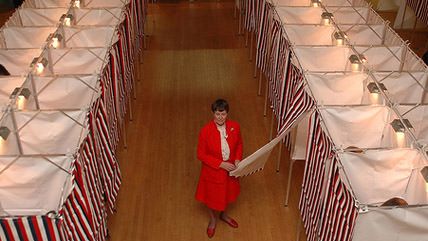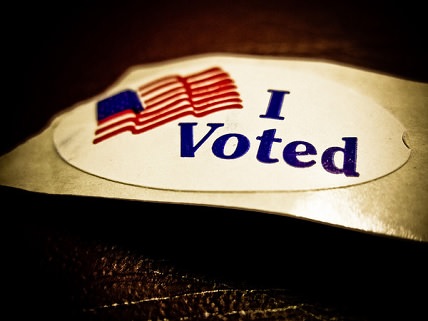Facebook and Google Are Changing Elections


Simple and personal are two things not often used to describe government. Internet giants like Facebook and Google want to change that for Election Day.
The Hill explains:
"While every election is important, the voting process can often feel complicated, with the information about how to head to the polls spread across multiple official sources," Google executive Anthea Watson Strong wrote in a recent blog post.
To simplify the process, Google is displaying state-specific details when people use search phrases such as "register to vote" or "how do I vote."
Searching on Google for "who is on my ballot" brings up a list of all the candidates running for the federal, statewide and local offices in any given area, while "where is my polling place" lists local polling places.
A Google page specifically set up for the elections — google.com/elections — lists the latest news and YouTube videos about the candidates as well as aggregated data about common political Google searches.
Facebook users may have noticed the "I'm Voting" button, known as the "voter megaphone," at the top of their newsfeed today. It's been rolled out slowly each election season since 2008, and it's now visible to anyone 18 or over.
"Our effort is neutral," a Facebook representative tells The Verge. "While we encourage any and all candidates, groups, and voters to use our platform to engage on the elections, we as a company have not used our products in a way that attempts to influence how people vote."
Still, people have been wary of the social media site's influence since it conducted an apolitical psychology experiment by tailoring what shows up on a user's newsfeed. And, the vote button did, according to a 2010 study, account for around 600,000 additional votes that year. "If you're told your friends have voted, you're 0.39 percent more likely to vote than someone who hasn't," The Atlantic explains.
In general, social media and technology are playing a larger role in the way people participate in our democratic republic. "Sixteen percent of registered voters said they follow politicians on social media, compared with the 6 percent who said they did so in 2010. The leap has been even bigger among middle-aged voters. Of registered voters from 30 to 49, 26 percent said they follow politicians online and 40 percent of whom said they've used their phones to help keep up with news about the elections," CNN reports based on Pew Poll data released yesterday.
Reason previously noted that another tech giant, Microsoft, has also put some skin in the game. They've predicting the outcome of the election. Guess who the big winners are.


Show Comments (30)